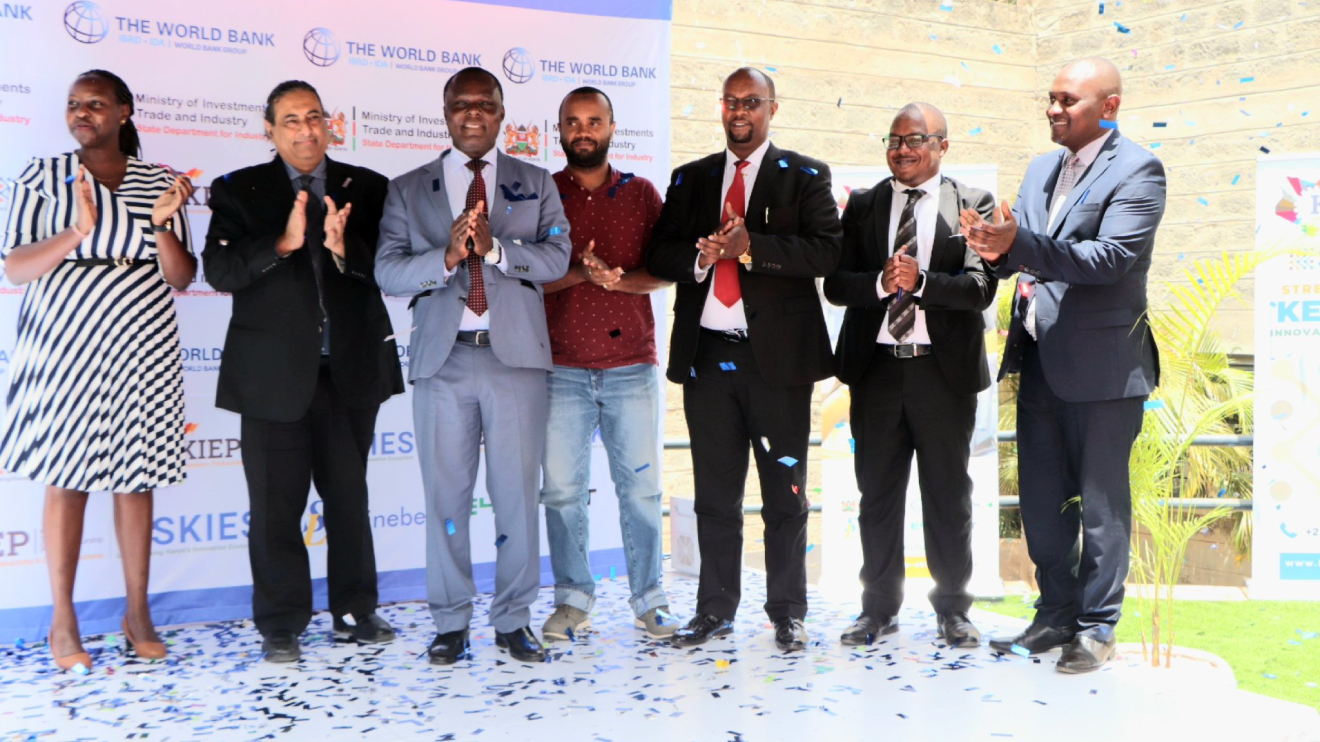Kenya and the World Bank have jointly announced the launch of the Strengthening Kenya's Innovation Ecosystem (SKIES) initiative, inviting applications from incubators, accelerators, and tech-bootcamp providers to apply for potential funding and business mentorship opportunities.
The partnership aims to bolster intermediaries that nurture and accelerate enterprises operating in diverse sectors, including Leather, Livestock (Dairy and Pastoralism Economy), Garments and Textiles, Industrial Production (Building Materials and Pharmaceuticals), and Crops (Edible Oils, Rice, Tea, Coffee).
Principal Secretary Juma Mukhwana of the State Department for Industry emphasized the critical importance of enterprise ecosystem intermediaries during the event.
He highlighted their indispensable role in bridging the gap between startups and their journey to becoming thriving enterprises.
With approximately 200 intermediaries spread across Kenya, these entities are actively contributing to the growth of the country's innovation ecosystem.
Read More
“The intermediaries bridge the gap between startups and their transformation into thriving enterprises. As of now, Kenya boasts a burgeoning number of intermediaries with their number being at approximately 200 spread all over the country which are actively contributing to the growth of our innovation ecosystem,” Mukhwana said.
The landscape of Kenyan entrepreneurship has borne witness to the emergence of several business incubators and accelerator programs, with a pronounced focus on Information, Communication & Technology (ICT) enterprises.
This growth has brought forth both benefits and challenges for these institutions.
While tech start-up support networks have flourished, the journey has been paved with hurdles.
David Cheboryot, a Director of the Management Firm and representative of the E4Impact Foundation, unveiled the visionary SKIES initiative.
He elaborated on the three fundamental pillars of transformation that will define SKIES' trajectory.
This involves fortifying intermediary capacity, empowering tech education, and fostering a culture of collaboration.
These pillars intend to encourage intermediaries to unite their efforts, enhance startup support, share best practices, and collectively contribute to the enrichment of the startup ecosystem.
Amid this dynamic growth, several startup challenges have been identified.
These include funding gaps, policy fluctuations, regulatory adjustments, and the prolonged process of business registration, particularly in regions yet to streamline their procedures.
Furthermore, the absence of a standardized platform to oversee the startup ecosystem has led to issues such as innovation duplication, the lack of a national opportunity repository, non-standardized best practices, and information imbalances that have given rise to a culture of seeking grants without a genuine commitment to excellence.
SKIES, an important component of the Sh5 billion Kenya Industry and Entrepreneurship Project (KIEP), funded by the World Bank Group and overseen by the Ministry of Investments, Trade and Industry (MITI), will be executed through two distinct tracks.
The first track welcomes applications from incubators and accelerators.
Successful applicants will be awarded financial grants tailored to individual improvement plans.
The second track targets technology boot camp providers and Rapid Tech Skills students.
Boot camp providers will receive grants to facilitate scaling, while students will receive subsidies to cover their tuition fees.
In total, SKIES aims to benefit 20 beneficiaries under Track 1, 16 beneficiaries under Track 2, and provide scholarships for rapid tech skills training to 532 students.
The initiative maintains a strong commitment to regional balance, ensuring representation from across Kenya's diverse landscape.
As Kenya collaborates with the World Bank in the SKIES initiative, a promising horizon of innovation and entrepreneurship lies ahead.











